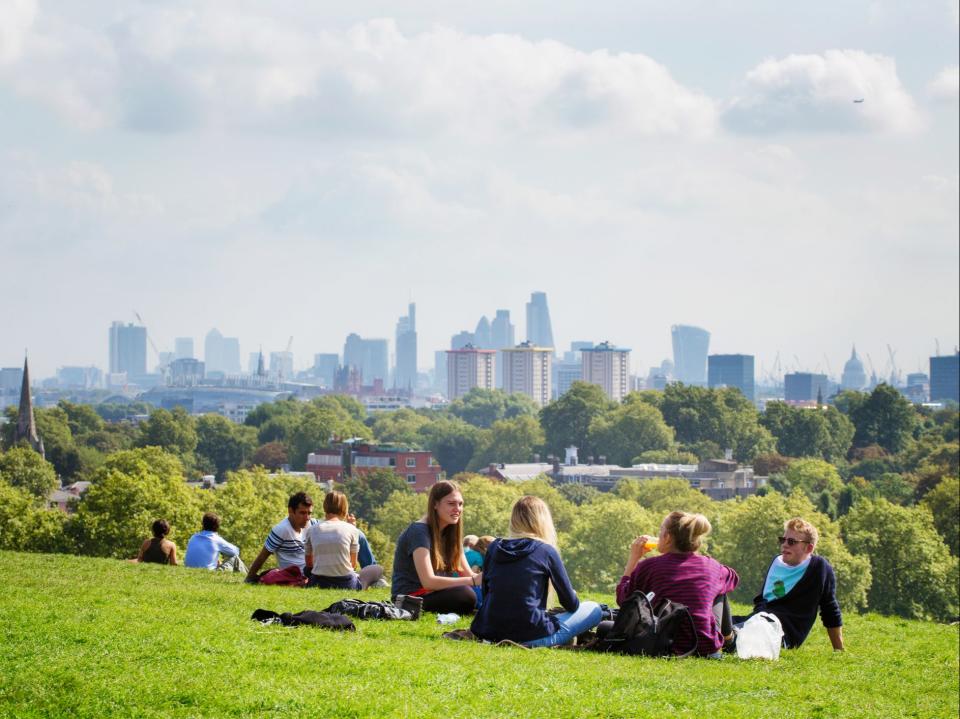Lockdown roadmap: Key dates as restrictions eased

Indoor household mixing is expected to resume in England from 17 May as part of the latest stage of the government’s roadmap out of lockdown.
After a cabinet meeting on Monday morning, Boris Johnson is set to announce the next easing of restrictions, which will enable hospitality venues to open their indoor spaces to groups of up to six people from early next week.
Social mixing will be permitted at people’s homes, provided that gatherings consist of no more than six people or two households.
Hugging is also likely to be allowed, with health minister Nadine Dorries saying she was “hopeful” that this would come under the new rules.
This comes after the government said that the latest data showed that the previous easing of restrictions - including the opening of non-essential shops on 12 April – had not resulted in a major leap in coronavirus cases.
The prime minister unveiled the staged approach to easing lockdown in February – but, while he pencilled in dates for lifting different rules, he said that infection, hospital and death numbers would determine the final decision each time.
Since 29 March, the rule of six means that six people have been able to meet outdoors, while outdoor group sports and leisure have also been allowed. This was followed on 12 April by the reopening of non-essential shops, as well as pubs and restaurants for outdoor hospitality. So what happens next?
From 17 May: Gatherings of up to 30 people will be permitted outdoors at this point. However, the rule of six and two-household rule will apply indoors as people are allowed to meet inside for the first time in months.
Pubs and restaurants will reopen indoors, as will cinemas, children’s play areas, hotels and B&Bs.
Some large events will be able to take place, including conferences, theatre and concert performances and sports events.
Controlled indoor events of up to 1,000 people or 50 per cent of a venue’s capacity, whichever is lower, will be permitted, as will outdoor events with a capacity of either 50 per cent or 4,000 people, whichever is lower.
The government will also make a special provision for large, outdoor, seated venues where crowds can be safely distributed, allowing up to 10,000 people or 25 per cent of total seated capacity, whichever is lower.
Up to 30 people will be allowed to attend weddings, receptions, funerals, and commemorative events, including wakes. A broader range of stand-alone life events will also be permitted at this step, including bar mitzvahs and christenings.
No earlier than 21 June: All legal limits on social contact will be lifted from 21 June at the earliest.
Once social-distancing is completely eased, nightclubs should be able to reopen and restrictions on events and live performances, including weddings, will finally being lifted.
What four conditions must be met?
The timetable for lifting restrictions will be subject to four tests at each stage of easing measures, including the success of the vaccination rollout, the effectiveness of the vaccination programme at reducing hospital admissions and deaths, infection rates and the impact of any new coronavirus variants.
The government will also conduct four reviews, including looking at coronavirus status certificates to allow people to prove if they have had a vaccine or negative test result, pilots of large events, international travel, and the withdrawal of social distancing measures and face masks.
Will the vaccine supply reduction affect the easing of lockdown?
The month-long “significant reduction” in the NHS’s weekly coronavirus vaccine supply could slow the easing of lockdown restrictions.
Dr Simon Clarke, associate professor in Cellular Microbiology at the University of Reading, told The Independent the delays could mean many people are “disenfranchised” when England starts opening up again.
Read More
Thames whale: Injured minke calf dies after rescue attempt
Met Police and Lambeth sued by Black activists for human rights breach
